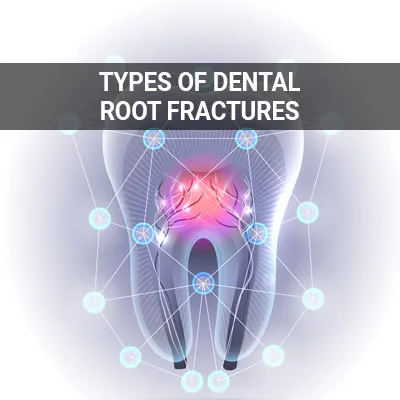7 Signs You Need Endodontic Surgery Downey, CA
Endodontic surgery can give patients a second chance to save teeth that have been affected by infection or damage. There are various signs that people should be aware of, indicating the need for endodontic surgery. If you notice any of these signs, do not hesitate to schedule a dental examination to determine the extent of damage and cause of discomfort.
Endodontic surgery is available at Amir Sanjabi Dental in Downey and the surrounding area. Our team can help. Call us at (562) 399-9243 to learn more about our services or schedule an appointment.
Importance of Endodontic Surgery
Endodontic surgery can save a tooth in a variety of situations. It is often the last resort to save a tooth with problems associated with a root canal or when root canal therapy is not enough to save a tooth. Surgery prevents the need for tooth extraction, allowing patients to retain their natural smiles.
While many people experience fear at the thought of surgery, the notion that endodontic surgery is scary and painful is mistaken. Technological advancements and new techniques help patients remain safe and comfortable during their procedures. Many patients have endodontic surgery to remove discomfort as treatment clears any infection and repairs damage.
“Many patients have endodontic surgery to remove discomfort as treatment clears any infection and repairs damage.”
Pain and Sensitivity
Undergoing professional dental cleaning removes leftover food and debris from tight spaces of the mouth. While this debris can be uncomfortable, the discomfort should disappear following the professional cleaning. If pain persists after the procedure, it could be a sign of tooth infection or decay that may require endodontic surgery.
Although it is normal to experience some sensitivity when consuming hot or cold drinks or food, persistent pain can indicate a more significant problem. Pain that continues even after eating or drinking may be due to weak enamel or an infection inside the tooth. The latter problem may require endodontic surgery to repair the damage.
“Endodontic surgery may be necessary if root canal therapy fails to repair the tooth.”
Pain and Tenderness When Touching the Teeth or Chewing
Pain, tenderness, and redness are common signs of an infected root requiring endodontic surgery. These symptoms can often be felt when touching the tooth or surrounding area and when biting or chewing. Although toothaches can be referred pain, or pain stemming from another area of the mouth or face, patients and dentists can often pinpoint the tooth in question due to tenderness and redness in a specific area. Removing the decay or infection from the tooth often eliminates this tenderness and allows patients to eat and chew normally.
“Pain, tenderness, and redness are common signs of an infected root requiring endodontic surgery.”
Check out what others are saying about our dental services on Yelp: 7 Signs You Need Endodontic Surgery in Downey, CA
Swelling, Draining, and Discoloration
Swollen gums and or gums with drainage around a painful tooth are a sign of infection. Patients who experience swelling and drainage of gums should seek treatment as quickly as possible. Without treatment, the infected area can grow and threaten a patient's oral health and necessitate endodontic surgery.
Abnormal discoloration of a specific tooth root is one of the first signs of an infected or dying tooth. When a tooth is infected, its tissues turn dark brown and cause the tooth to appear more brown or yellow. Endodontic surgery is necessary to extract the darkened tooth tissue and helps restore the tooth's appearance.
“Without treatment, the infected area can grow and threaten a patient’s oral health and necessitate endodontic surgery.”
Questions Answered on This Page
Q. What is the importance of endodontic surgery?
Q. Is increased sensitivity to temperature a sign that endodontic surgery is necessary?
Q. Are pain and tenderness when touching the teeth or chewing a sign of a problem?
People Also Ask
Q. How common are root canals?
Q. Are there any alternatives to root canals?
Q. Do I need a tooth extraction?
Q. What is the difference between endodontists and dentists?
Q. What sorts of trauma can necessitate tooth extraction?
Abscesses and Bumps
A dental abscess occurs when bacteria and the infected tooth pulp form a pus-filled pocket at the bottom of the tooth root. An abscess can cause severe discomfort and will not go away without treatment. Patients may experience less pain if the abscess ruptures, but they will still require endodontic surgery.
Another indication that a patient may need endodontic surgery is a small bump near a tooth. Patients with this bump should schedule a dental appointment as quickly as possible to remove the source of infection and pus. Endodontic surgery may be necessary if the tooth infection is severe.
“Patients may experience less pain if the abscess ruptures, but they will still require endodontic surgery.”
Frequently Asked Questions
Q. What are the types of endodontic surgeries?
A. Endodontic surgeries include apicoectomies, calcium deposit removals, and root canal treatments. An apicoectomy is a surgery to remove an infection in the root that results after root canal treatment. Calcium deposit removal involves cleaning and clearing the area from calcium accumulation to get the area ready for a root canal. Root canal treatments are the most common type of endodontic surgery to remove the infected pulp from the inner canal.
Q. Does endodontic surgery hurt?
A. Advancements in dental technology and improvements in anesthesia have allowed endodontic surgeries to be pain-free. Patients may experience slight discomfort and tenderness following the procedure, but that should dissipate within the first few days. We will also prescribe antibiotics and pain relief medication to reduce swelling, inflammation, and discomfort.
Q. Can I drive after the surgery?
A. This largely depends on the type of surgery the patient undergoes. In root canal treatments, patients can typically drive themselves home as we administer only a local anesthetic. For more severe conditions in which we use general anesthesia, the patient must arrange transportation the day of the procedure. The patient will be notified of this during the consultation appointment.
Q. How much does endodontic surgery cost?
A. The cost of surgery depends on the type of treatment and severity of the condition. We encourage patients to speak with their insurance provider prior to receiving treatment to better understand what their plan entails and what their co-pays may be.
Q. How long will it take to resume normal activities after surgery?
A. Patients should be able to resume normal activities the following day. However, if they feel pain, dizziness, or fatigue, rest is highly recommended. In cases of worsening symptoms, we encourage patients to contact us as soon as possible to schedule a follow-up.
Endodontic Terminology
Helpful Related Links
- American Dental Association (ADA). Glossary of Dental Clinical Terms. 2024
- American Academy of Cosmetic Dentistry® (AACD). Home Page. 2024
- WebMD. WebMD’s Oral Care Guide. 2024
About our business, license, and website security
- Amir Sanjabi Dental was established in 2018.
- We accept the following payment methods: American Express, Cash, Check, Discover, MasterCard, and Visa
- We serve patients from the following counties: Los Angeles County
- We serve patients from the following cities: Downey, South Gate, Paramount, Bellflower, Norwalk, Santa Fe Springs, Bell Gardens, Lynwood, Pico Rivera and Whittier
- CA (License #100612). View License Information and Specifics
- National Provider Identifier Database (1992259592). View NPI Registry Information
- Norton Safe Web. View Details
- Trend Micro Site Safety Center. View Details
Back to top of 7 Signs You Need Endodontic Surgery
















